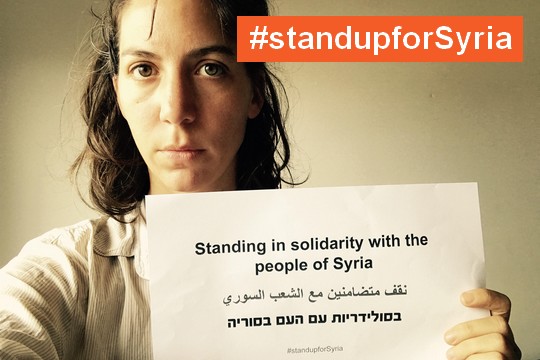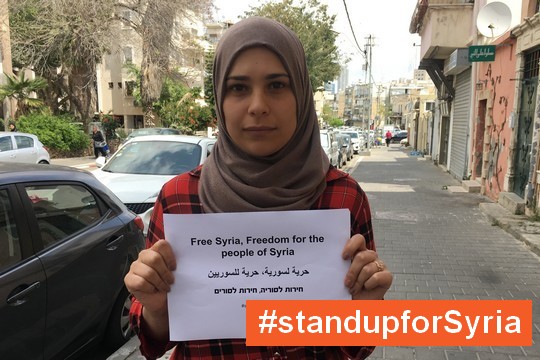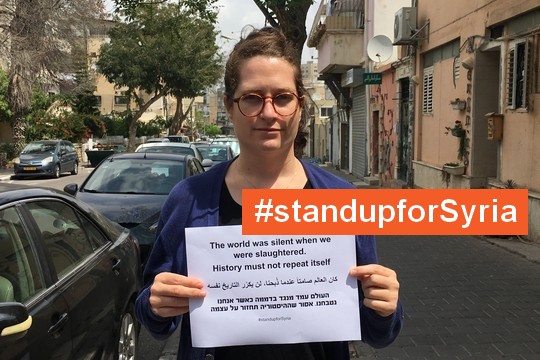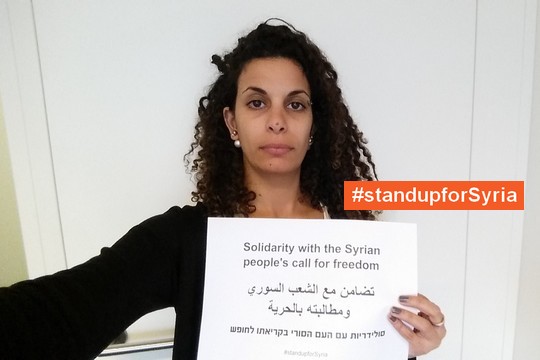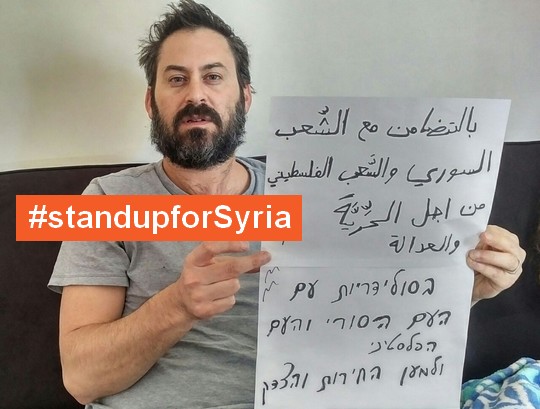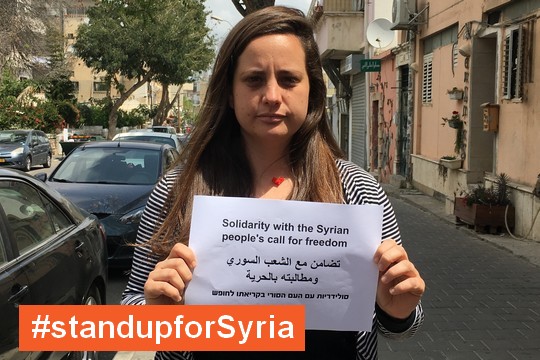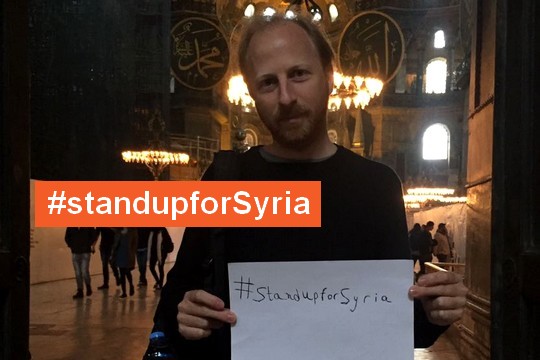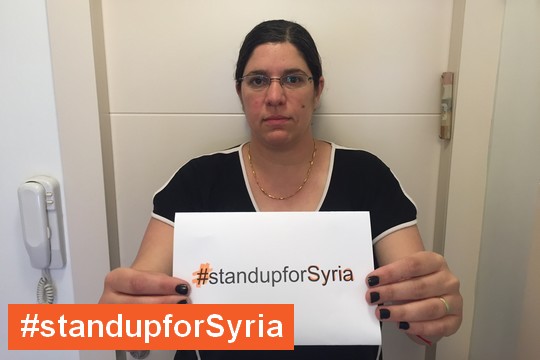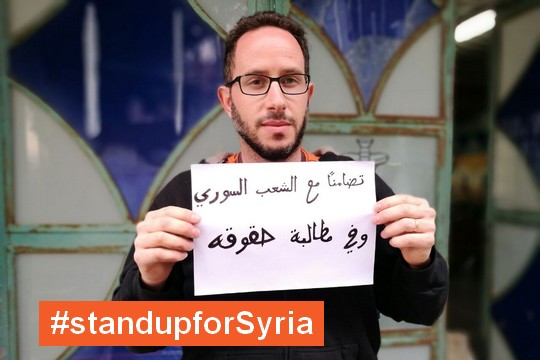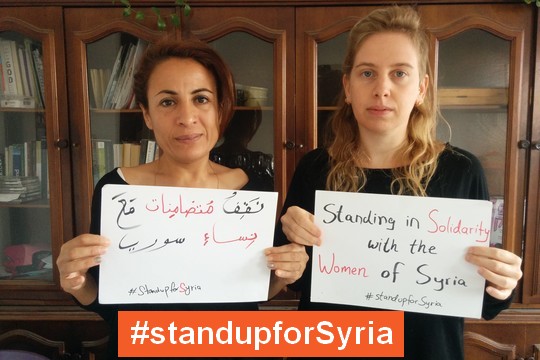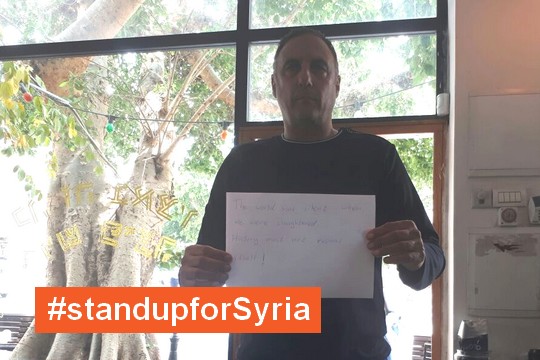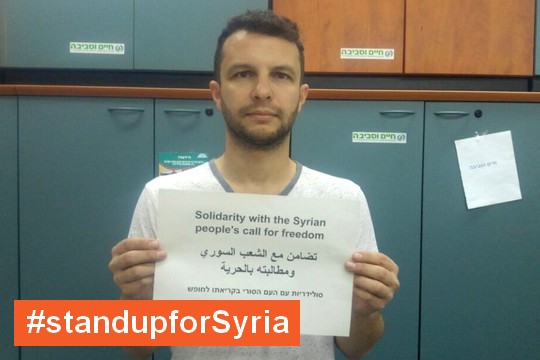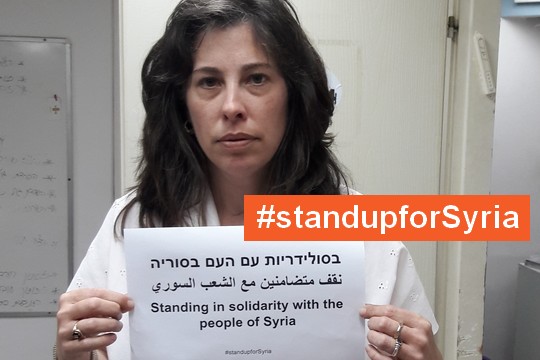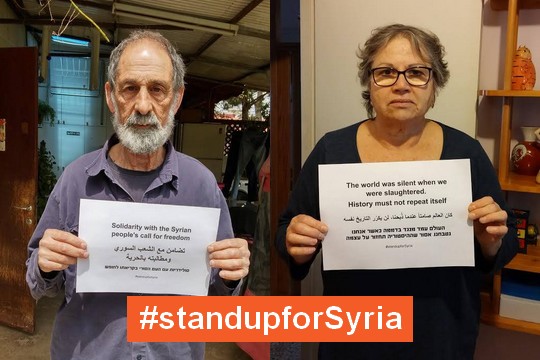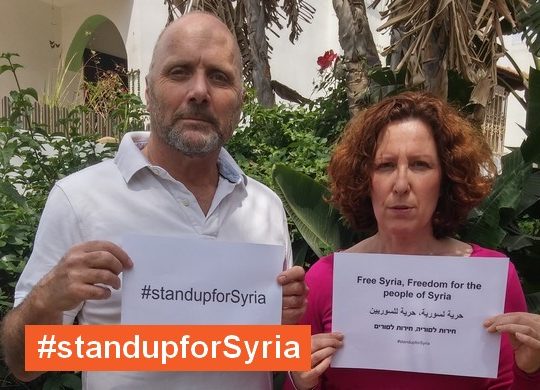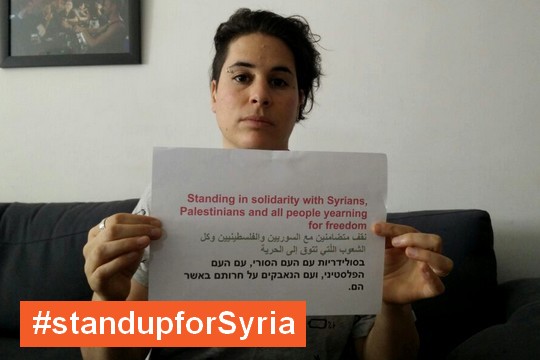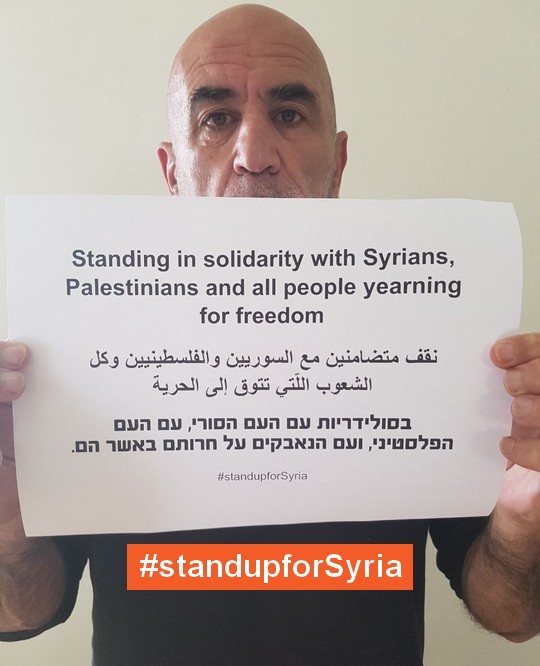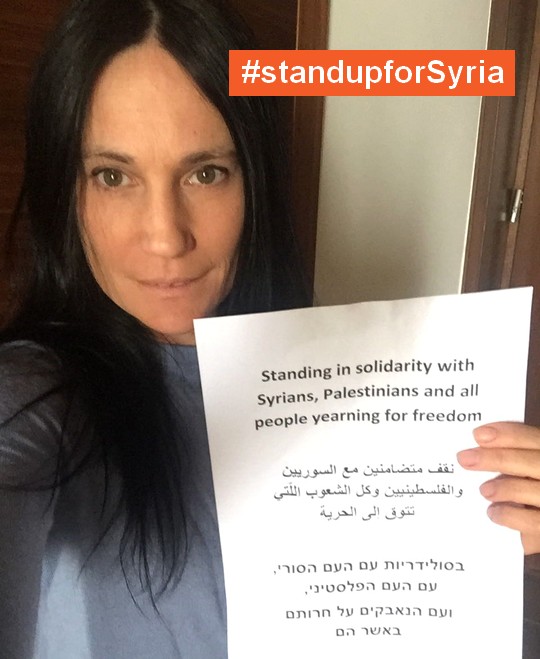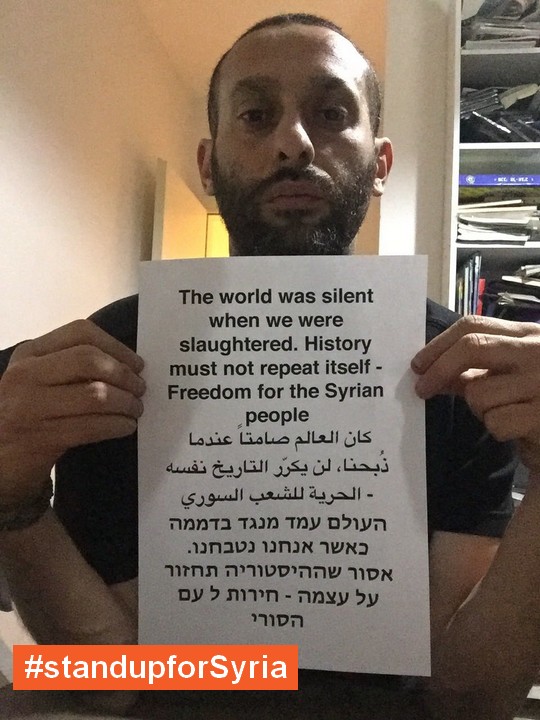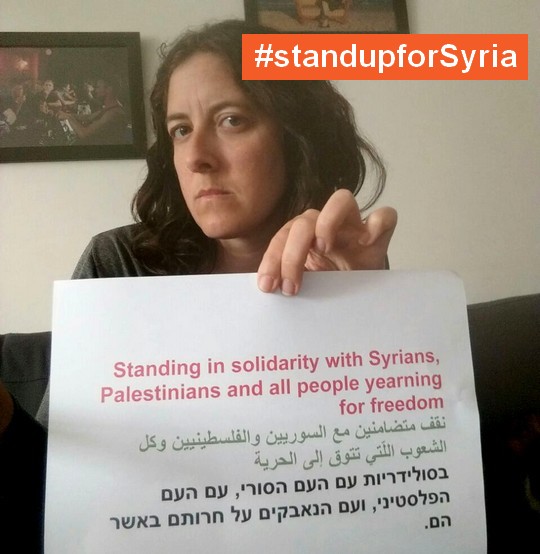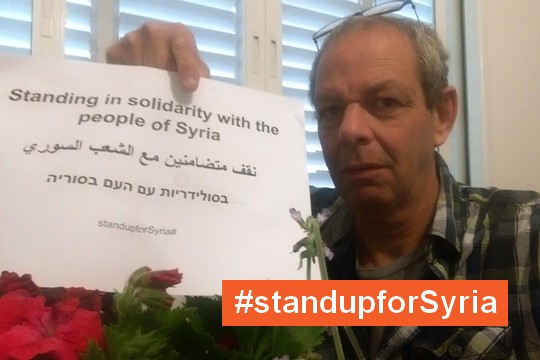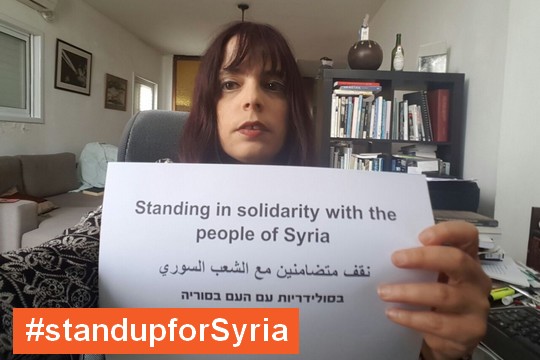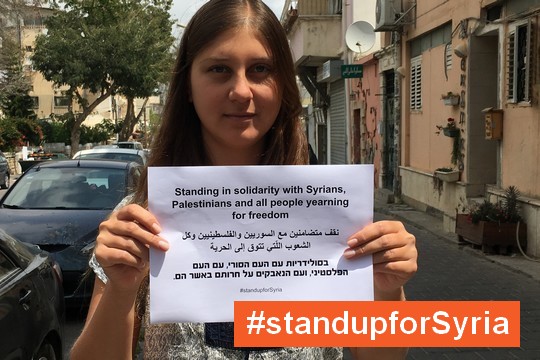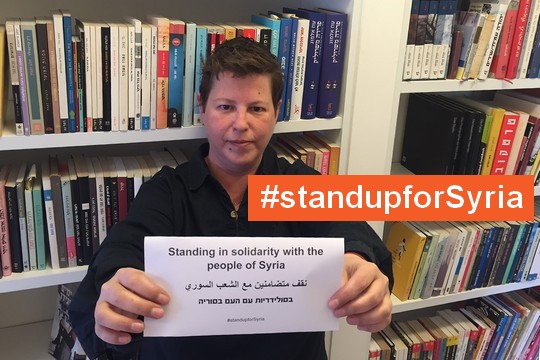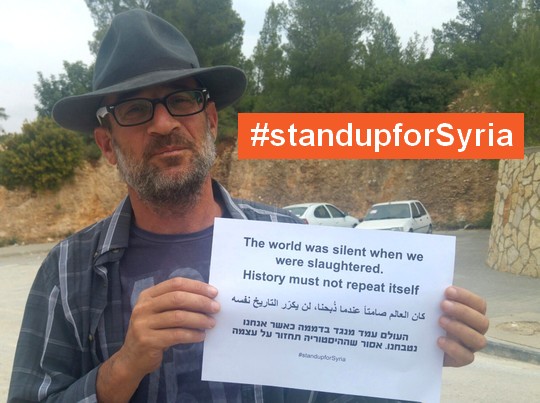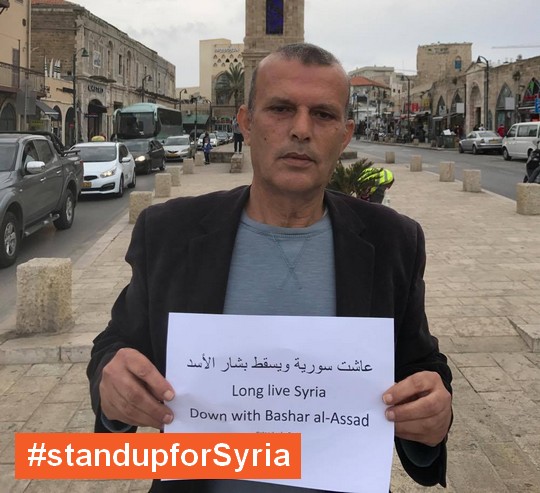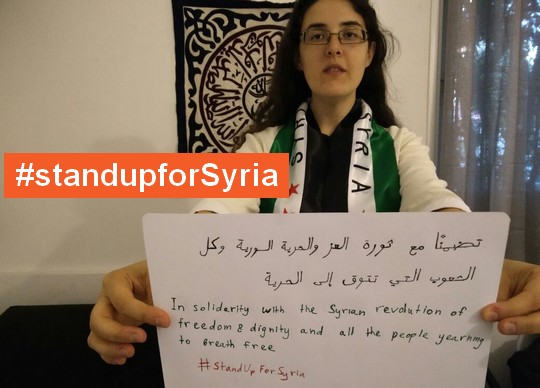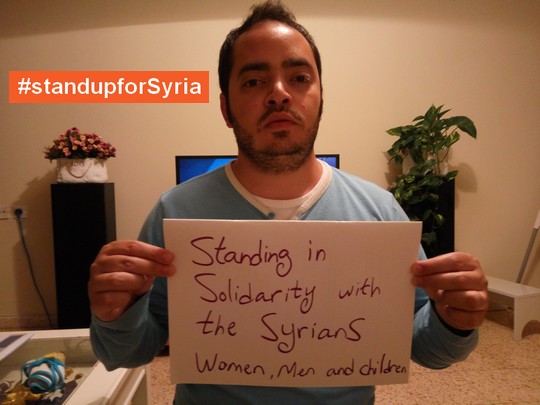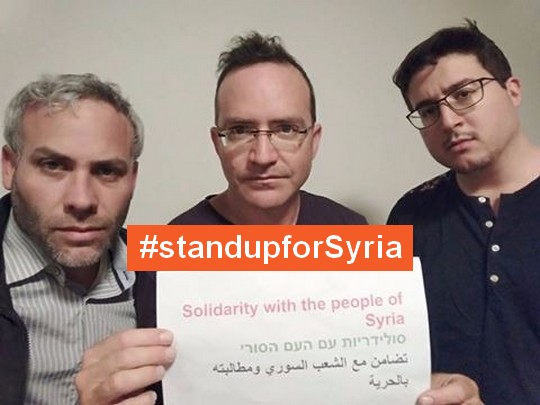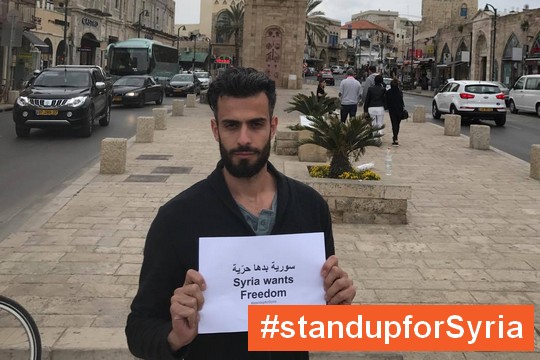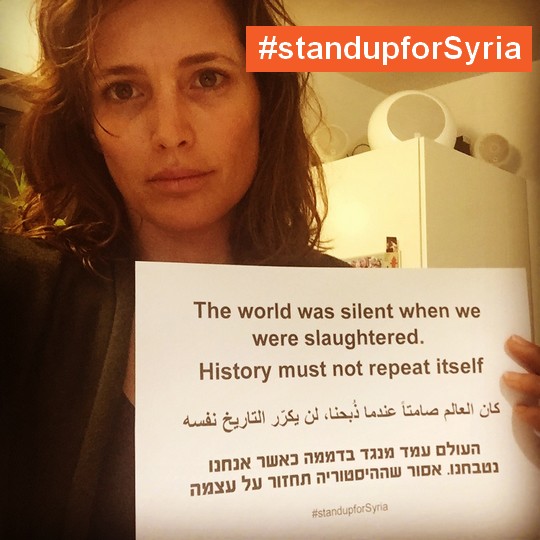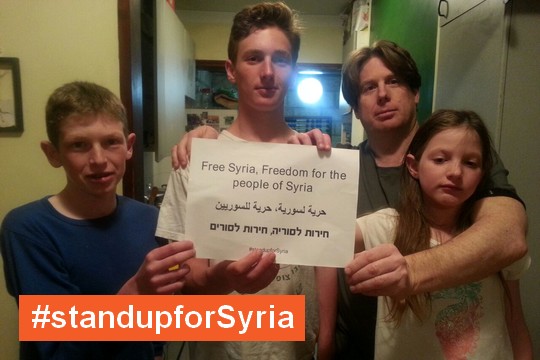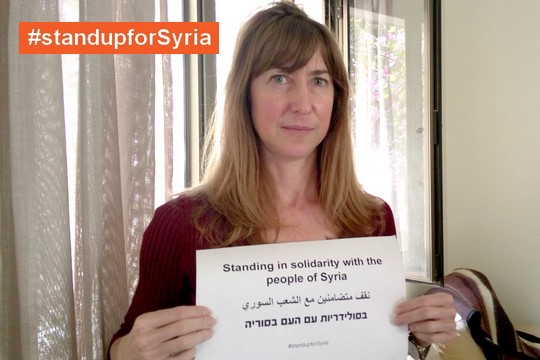We asked Syrian activists one question: How can we help? They responded with only one request: solidarity, to feel that the world knows what’s happening to them, that we aren’t indifferent. Join us in posting a photo of yourself with the hashtag #StandUpForSyria. Don’t remain silent any longer.
By: Eli Bitan, Elizabeth Tsurkov, Yael Marom, Orly Noy, Haggai Matar, Gil Gertel, Alma Biblash, Eddy Zensker, Dahlia Scheindlin, Mairav Zonszein, Mya Guarnieri Jaradat, Natasha Roth
We have all seen the horrible images from Idlib province in Syria, where Assad is once again brutally massacring his own people. This is of course not the first time – for six years, the citizens of Syria have undergone systematic massacres, bombing, siege, starvation and mass expulsions. Every atrocity reaches a new height of cruelty, yet the world continues with its muted responses, as silent spectators. We cannot remain silent.
We see everything. The mass killings and carnage are being documented in real time in unprecedented ways: on Facebook, YouTube, Twitter. Hundreds of Syrians are being killed and tortured to death just for documenting the events taking place in their country, so that the people of the world might know what is happening, so we won’t be able to say, “we didn’t come to help because we didn’t know.”
All the information is available, yet Syrians live with the feeling of having been abandoned by the entire world. The United States’ punitive strike —following the chemical attack of Khan Sheikhoun in Idlib in which many children were murdered, and where hospitals treating the wounded were bombed — was an isolated response, an anomaly.
No one denies the facts. About half a million Syrians have been killed to date in the civil war in Syria, tens of thousands are being detained in the Assad regime’s torture, roughly half the country’s population have been displaced from their homes, and more than five million have become refugees outside the country. Throughout the years of fighting, terrifying crimes have been taking place in Syria every day, perpetrated not only by the regime and Russia — who, according to data from the Syrian Network for Human Rights, are responsible for about 95 percent of the civilian deaths in Syria since 2011 — but also by other armed groups, particularly radical jihadist groups.
So what can we do? Beyond donating to organizations assisting the victims of the war, we have asked friends in Syria, those who are facing the bombs, battles and attacks every day, all while trying to preserve a sense of dignity, what they expect us to do. They asked us simply to express solidarity and support — on social media, in newspapers, through demonstrations and activities directed at decision-makers.
All such support boosts their morale, knowing that the outside world knows what’s happening. These activities influence decision-makers and crack the wall of indifference among world leaders — indifference to a cruel, systematic genocide in Syria.
Will it solve the problem? The solidarity campaign that we are proposing won’t change the reality in Syria. As Israelis and Palestinians, our ability to influence what happens there is very limited. But we hope it will make Syrian citizens feel less alone, knowing that we are not just waiting for the next massacre before we stand by their side.
How to do it? We have asked activists in Syria to help by writing the messages they want to hear from Israelis and Palestinians. The sentences they sent us have been translated into three languages: Hebrew, Arabic and English, and they appear at the end of this post (here’s a link to the files, for downloading and printing).
We are asking you to join us. Take a photo of yourself holding one of the signs we’ve prepared, or with a sign with your own message of solidarity. Post the photo on social media with the hashtag #StandUpForSyria, and send it to us by email: info@mekomit.co.il with the subject line “Stand Up for Syria.” We will collect all the photos and send a message of solidarity to the Syrians. The campaign is an initiative of Local Call bloggers.
This article was first published in Hebrew on Local Call. Read it here.

